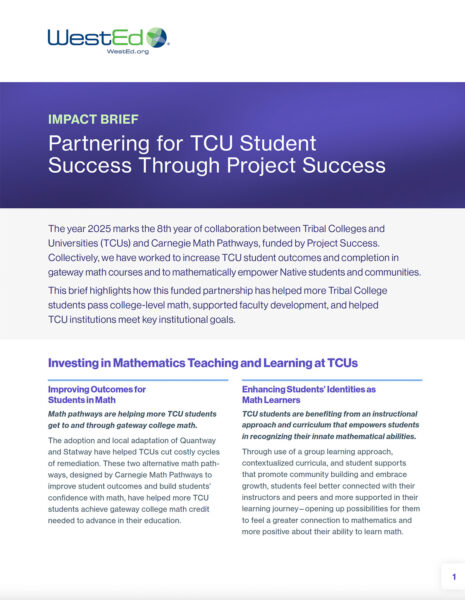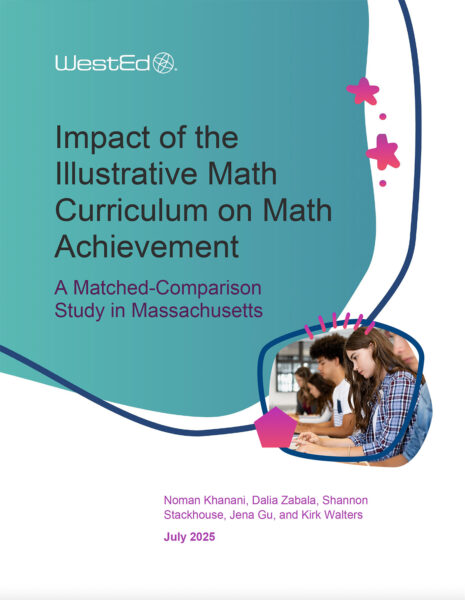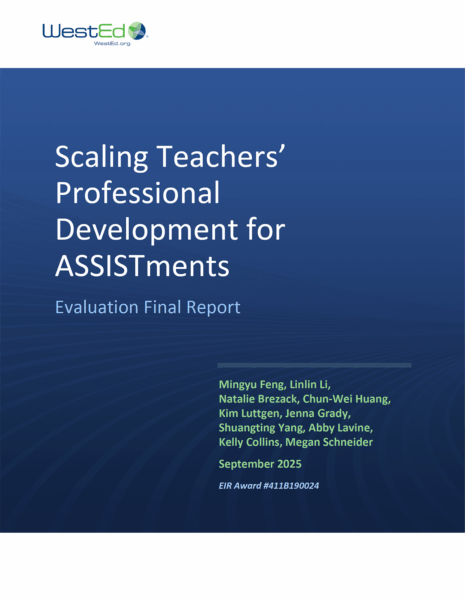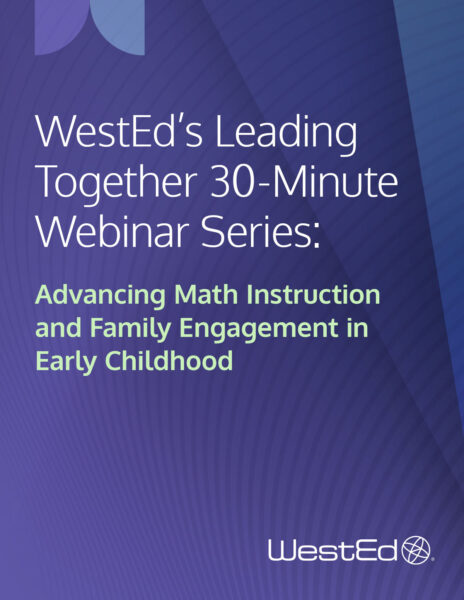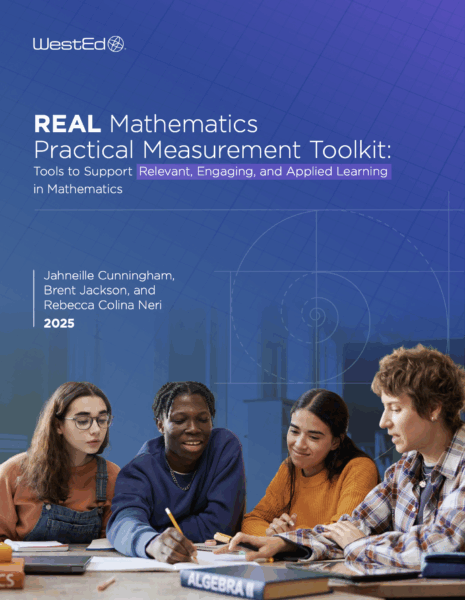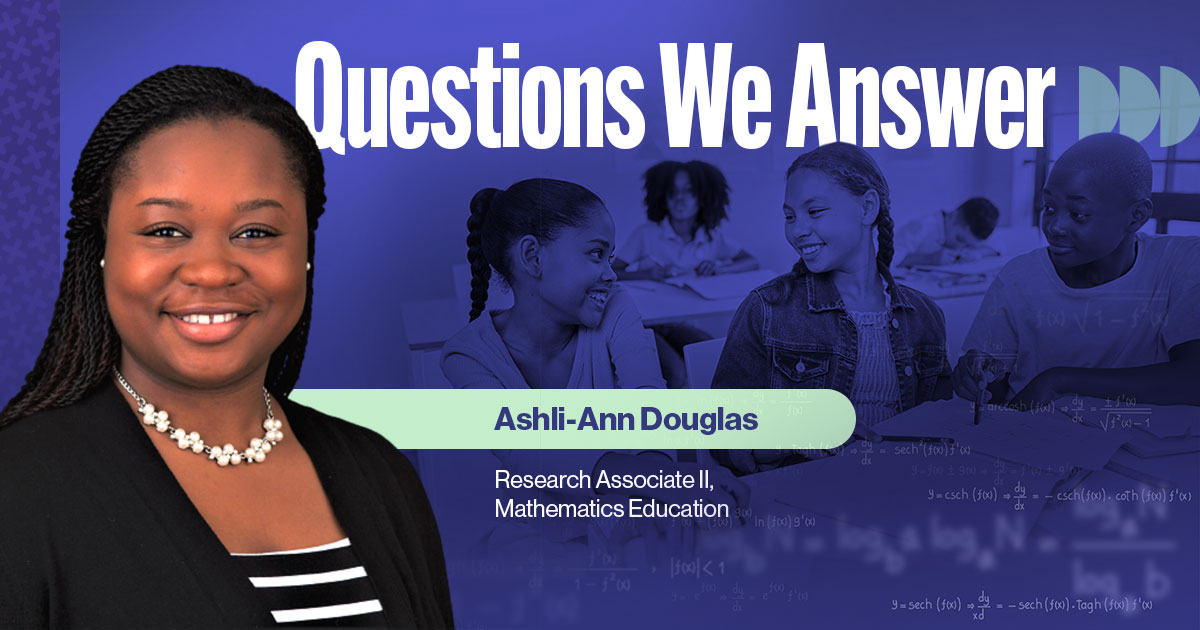
November 12, 2025
Welcome to Questions We Answer, our new blog series in which WestEd’s mathematics experts tackle common questions from the field. Every post offers educators and leaders practical tips and useful insights they can apply right away.
We took this question to Dr. Ashli-Ann Douglas, a mathematics education expert known for leading large-scale research and designing high-impact learning experiences for teachers. Here is her response:
Effective online teacher professional learning (PL) can play a critical role in enhancing mathematics instruction, equipping teachers with the knowledge and skills necessary to improve student outcomes.
Research shows the potential for online teacher PL to provide more educators with increased access to PL, but attention to the key components of those offerings is critical for teacher engagement and improved teacher and student outcomes.
Effective online PL for mathematics teachers hinges on research-backed features that foster deep learning and sustained participation. Education leaders should prioritize online PL programs that
- encourage teachers to analyze student work and solve complex math problems in collaboration with other teachers,
- promote teacher reflection on how they teach and what they are learning from the PL,
- are engaging and responsive to teachers’ needs and motivations,
- offer teachers flexible participation options,
- build communities of practice with supportive peer feedback, and
- feature experienced facilitators who balance affective and cognitive support.
When teachers collaborate to analyze student work, they deepen their understanding of student thinking and identify areas in which students require additional support. Similarly, when teachers complete complex math problems, they enhance their problem-solving skills and anticipate student challenges. These hands-on experiences prompt teachers to reflect on instructional strategies and move beyond passively receiving information toward constructing deeper conceptual understanding and using instructional strategies more effectively.
Working with skilled facilitators who can foster a community of practice within online PL supports teacher learning through emotional connection, shared reflection, and clear connections between the PL content and their classrooms. Practical considerations for effective online PL include alignment with teacher needs and motivations, time commitment, accessibility, and the provision of relevant resources.
Education leaders can make a difference by using these criteria to choose research-aligned PL programs and maximize the impact of their investments in teacher learning.
How We Help
Our experts design and guide effective PL that meets educators’ needs and sets the stage for your desired outcomes. We can also review and provide actionable feedback on your current PL programs.
Read the first post in the Questions We Answer Series, How Can Education Leaders Choose High-Quality Instructional Materials for Math Teaching and Learning? and stay tuned as we continue to provide practical answers to the most pressing questions in mathematics education.






